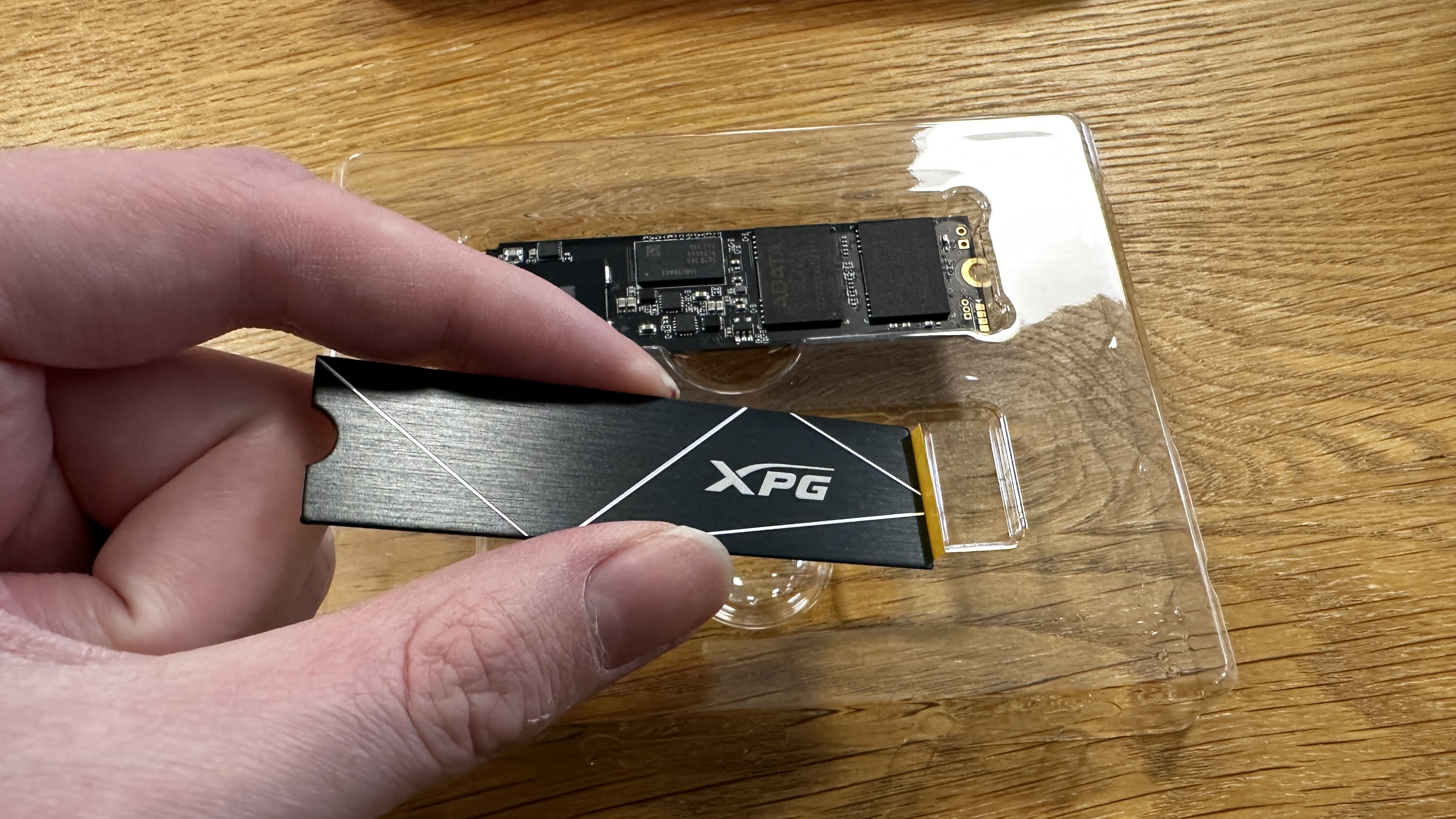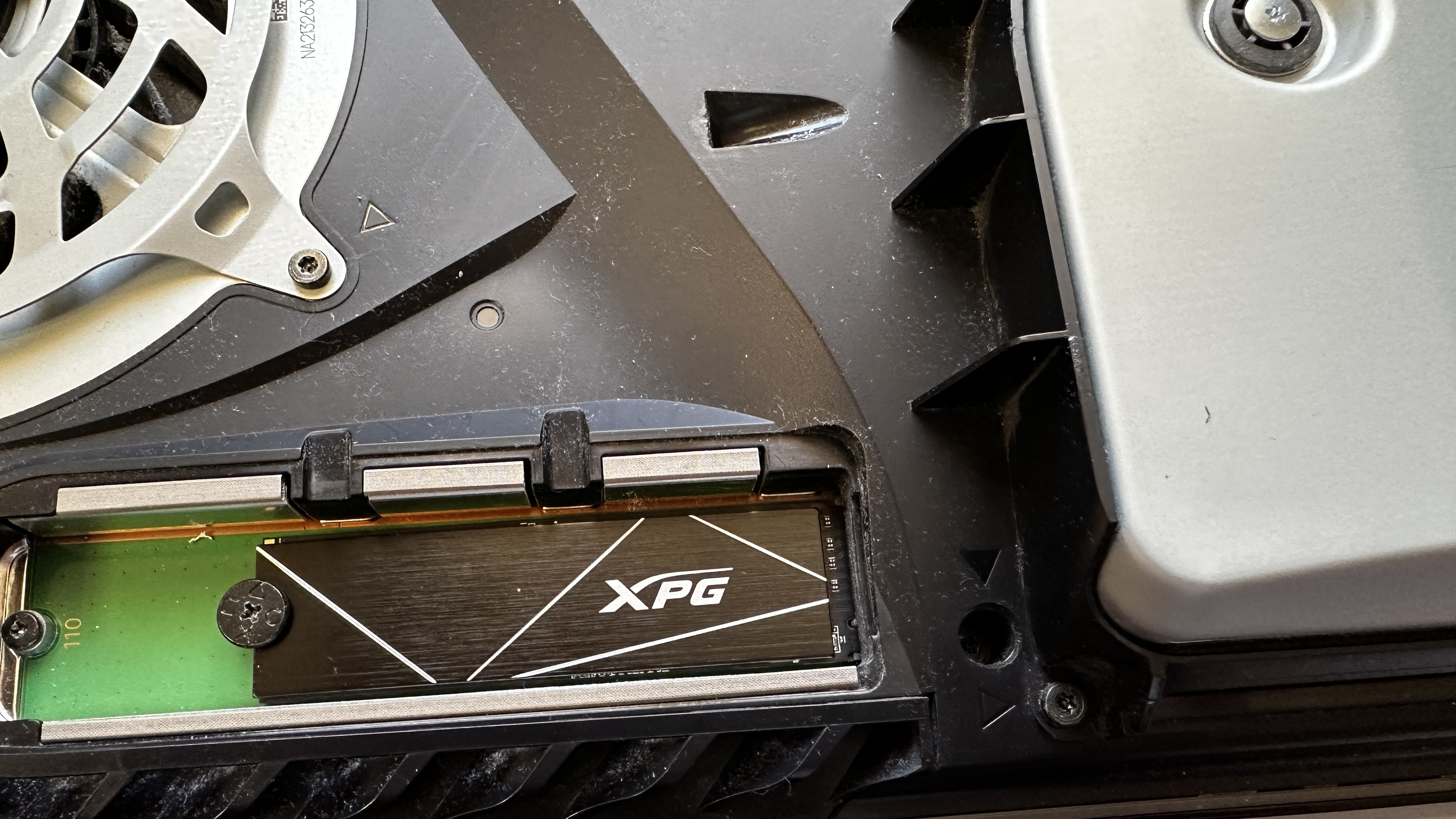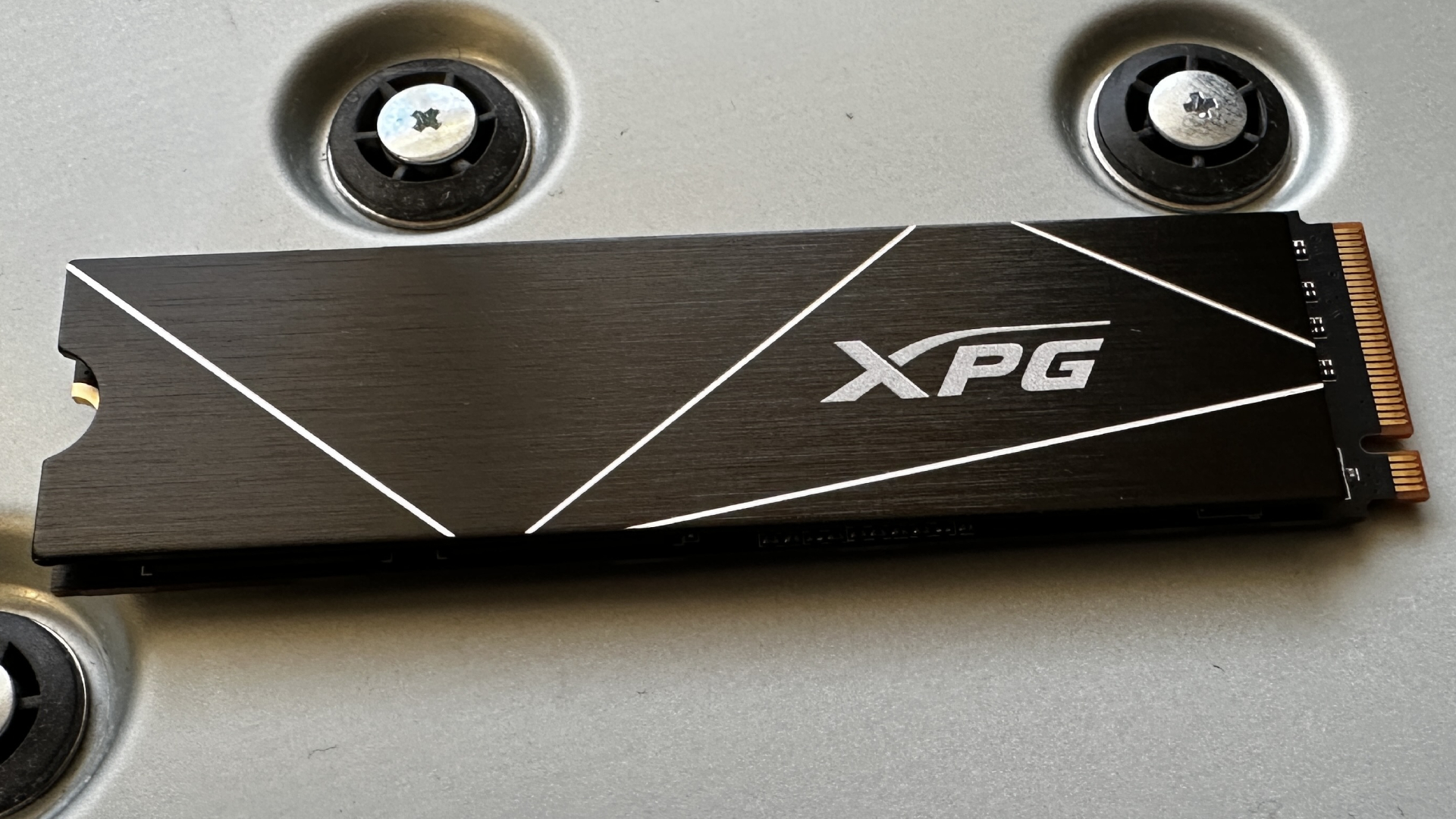TechRadar Verdict
The Adata XPG Gammix S70 Blade demonstrates that budget SSDs for PS5 can perform just as well as the premium offerings. With excellent sequential performance, you can’t ask for much better, given the sticker price.
Pros
- +
Aggressive price point
- +
Included heatsink
- +
Strong sequential performance
Cons
- -
Build quality isn’t the best
Why you can trust TechRadar
Since the launch of the PS5, the Adata XPG Gammix S70 Blade has been the frontrunner of the budget SSDs. It’s a punchy performer despite its humble price tag.
With its competitive price-to-performance ratio, the Adata XPG Gammix S70 Blade is easily one of the best SSDs for PS5. If you’re on a budget, you can still get top-end Gen 4.0 NVMe rates, and that hasn’t always been the case from this storage generation.
Price and Availability
The Adata XPG Gammix S70 Blade is one of the most affordable Gen 4.0 NVMe SSDs that come with a PS5-ready heatsink. It can be widely found in the US, the UK, and Australia. Prices range from $84.99 / £87.13 / $161.95 (1TB), and $169.99 / £161.52 / AU$362.78 (2TB). That 1TB is the sweet spot here as it’s still rare to find an SSD for PS5 under the $100 / £100 / $AU180 range.
Design and Features

The design of the Adata XPG Gammix S70 Blade is where corners were cut. That’s because the SSD comes with the controller and flash memory modules exposed; the PS5 SSD heatsink comes separately with an adhesive layer that fuses to the plastic. This low-profile heatsink doesn’t feel sturdy or durable, but does the job well enough when in place.
The drive’s price also explains the choice of controller. The Adata XPG Gammix S70 Blade utilizes the Innogrit IG5236, which doesn’t quite touch or exceed 7,000 MB/s, as the popular Phison E-18 does. Adata claims this SSD can reach read speeds of up to 6,300 MB/s inside the PS5, and boasts maximum write rates of up to 6,800 MB/s. While not as impressive on paper as the Kingston Fury Renegade or the Seagate FireCuda 530, it doesn’t have to be.
Performance

Inside my PS5, the Adata XPG Gammix S70 Blade achieved a read figure of 6,384 MB/s, slightly faster than the claimed 6,000 MB/s. Few drives can boast this figure outside of the top-end Kingston Fury Renegade and the Seagate FireCuda 530. Yet, this budget SSD for PS5 easily outdoes the pricier PNY CS3140 in terms of raw numbers.
That’s impressive, but more so are the file transfer and loading times I experienced with the Adata XPG Gammix S70 Blade. Horizon: Forbidden West’s 99.69 GB made the leap from the internal storage to the Gen 4.0 drive in only 1 minute and 18 seconds (or 78 seconds). Smaller PS5 games kept up the momentum, Death Stranding: Director’s Cut (68.97 GB) and Dead Space (31.15 GB) wrote onto the NVMe SSD in only 53 seconds and 28 seconds, respectively. That’s just over 1 GB/sec and as fast as the premium SSD equivalents.
As some of the best PS5 games take full advantage of the NVMe technology, loading times with the Adata XPG Gammix S70 Blade are brisk. The most fitting example is the Dead Space remake, which gets you into gameplay in less than 3 seconds. Deathloop and Death Stranding are not far behind, both go from the menu to gameplay in around 5 seconds. That’s even slightly faster than the internal storage of the console itself.
There’s little I can fault the Adata XPG Gammix S70 Blade on. If you’re in the market for a 1TB SSD for PS5 and are working with a strict budget, I can wholeheartedly recommend this one. The heatsink isn’t great, and the build is as basic as it comes, but there are no performance worries from this Gen 4.0 drive.
Should I buy the Adata XPG Gammix S70 Blade?
Buy it if…
You want good value for money
The Adata XPG Gammix S70 Blade considerably undercuts the competition while providing similar performance in the PS5 console.
1TB is your capacity of choice
The speed spot with the budget pricing is 1TB for the best price-per-gigabyte here.
Don't buy it if...
You’re considering 2TB or above
If you want to go bigger with your storage, you may be better served with a higher-end alternative as the prices become less aggressive.

Formerly TechRadar Gaming's Hardware Editor, Aleksha McLoughlin is now a freelance writer and editor specializing in computing tech, video games, and E-commerce. As well as her many contributions to this site, you'll also find her work available on sister sites such as PC Gamer, GamesRadar, and Android Central. Additionally, more of her bylines can be found on Trusted Reviews, Dexerto, Expert Reviews, Techopedia, PC Guide, VideoGamer, and more.
